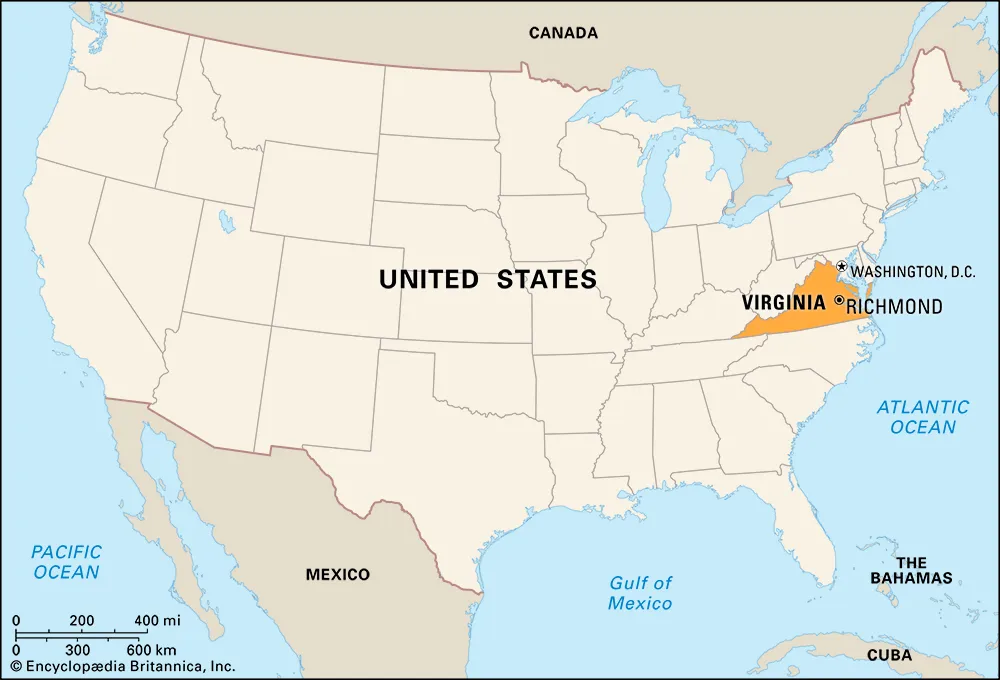
What is a Registered Agent in Virginia?
In Virginia, a Registered Agent serves as the official liaison between a business entity and the state. This agent is tasked with receiving important legal documents, including service of process, government correspondence, and compliance-related notifications on behalf of the business. The role of a Registered Agent is pivotal in ensuring that the business maintains good standing with the Virginia State Corporation Commission (SCC) by staying up-to-date with legal and filing requirements.
Key aspects of Registered Agents in Virginia include:
Eligibility: A Registered Agent in Virginia can be either an individual who resides in Virginia or a business entity authorized to do business in the state. The agent must have a physical address in Virginia (not a P.O. Box) where they can receive documents in person.
Availability: The Registered Agent must be available at the listed physical address during normal business hours to accept legal documents on behalf of the business.
Compliance Role: By ensuring timely receipt and handling of important documents, the Registered Agent plays a critical role in helping the business maintain compliance with state regulations and avoid legal pitfalls.
Changing a Registered Agent: Businesses can change their Registered Agent by filing the appropriate form with the Virginia SCC and paying any necessary fee. This process ensures that the state has current contact information for serving legal documents.
Public Record: Information about a business’s Registered Agent, including their name and address, is a matter of public record and can be accessed through the Virginia SCC’s website. This transparency supports the legal and regulatory framework for conducting business in Virginia.
How can I determine if my Virginia business needs a Registered Agent?
In Virginia, most types of formal business entities are required to have a Registered Agent. Here are some factors to consider in determining whether your Virginia business needs a Registered Agent:
Business Entity Type: If your business is registered as a corporation, limited liability company (LLC), limited partnership (LP), limited liability partnership (LLP), or any other formal business entity with the Virginia State Corporation Commission (SCC), you are generally required to have a Registered Agent.
Physical Presence in Virginia: If your business is formed in another state but operates in Virginia (foreign entity), you must appoint a Registered Agent with a physical address in Virginia. This requirement ensures that your business has a reliable point of contact within the state for service of process and official communications.
Legal Compliance: The Registered Agent requirement is a legal obligation imposed by the Virginia SCC to ensure that businesses can be effectively contacted for various legal and administrative purposes. This includes receiving legal notices, tax documents, and compliance-related correspondence.
If your business falls into any of the categories mentioned above, it is mandatory to have a Registered Agent in Virginia. The Registered Agent can be an individual or a business entity, but they must have a physical address in Virginia (not a P.O. Box) and be available during regular business hours to accept documents on behalf of the business.
For sole proprietorships and general partnerships that are not formally registered with the Virginia SCC, the requirement for a Registered Agent may not apply in the same manner as it does for registered entities. However, if these businesses choose to register with the state in the future, they will be required to appoint a Registered Agent.
If you are unsure about the status of your business or whether it requires a Registered Agent in Virginia, it is advisable to consult with a legal professional or contact the Virginia SCC for specific guidance tailored to your business’s circumstances.
What does a Registered Agent do for a Virginia business?

A Registered Agent plays a crucial role for a Virginia business by acting as its official representative to receive legal documents, government communications, and compliance-related notices. Below are the key responsibilities of a Registered Agent for a Virginia business:
Receiving Service of Process: One of the primary duties of a Registered Agent is to receive service of process on behalf of the business. This includes any legal documents related to lawsuits, ensuring that the business can respond in a timely manner.
Receiving Government Correspondence: Registered Agents are responsible for receiving official government correspondence. This includes tax notices, annual report reminders, and other communications from the Virginia State Corporation Commission (SCC).
Compliance Notices: The Registered Agent also receives notices about compliance requirements, such as filing deadlines for annual reports or renewing business licenses. This helps the business maintain good standing with the state.
Acting as a Point of Contact: The Registered Agent serves as the official point of contact for the business regarding legal, tax, and compliance matters. This ensures that important communications are directed to a designated individual or entity capable of handling them appropriately.
Maintaining Privacy: For some businesses, having a Registered Agent allows the business owner’s personal address to be kept off the public record, thereby enhancing their privacy.
It’s important for businesses in Virginia to select a responsible and reliable Registered Agent, as failure to properly receive and respond to important legal and compliance-related documents can have serious consequences, including fines or the loss of good standing with the state.
Are there any legal requirements specific to Virginia when selecting a Registered Agent for my business?
Yes, Virginia has specific legal requirements that must be met when selecting a Registered Agent for your business. Understanding these requirements is crucial to ensure that your business remains in compliance with state regulations. Here are the key legal requirements:
Physical Presence: The Registered Agent must have a physical address (known as the registered office) in Virginia. P.O. Boxes or solely virtual offices are not acceptable; the location must be one where the agent can physically accept service of process and official mail.
Availability: The Registered Agent must be available at the registered office during standard business hours to personally accept service of process and other official documents on behalf of the business.
Eligibility: If the Registered Agent is an individual, they must be a resident of Virginia. If the agent is a business entity (such as a Registered Agent service company), the entity must be authorized to conduct business in Virginia and meet the same physical address requirements.
Formal Designation: A business must formally designate its Registered Agent as part of its initial formation documents (such as articles of incorporation for corporations or articles of organization for LLCs) filed with the Virginia State Corporation Commission (SCC). Any changes to the Registered Agent’s information must be reported to the SCC through the filing of appropriate forms and payment of applicable fees.
Consent: While Virginia law does not explicitly require the Registered Agent’s consent to serve in this capacity, it is generally advisable for a business to obtain consent to ensure that the agent is willing and prepared to fulfill their responsibilities.
By meeting these specific legal requirements, your business can ensure that it appropriately designates a Registered Agent who can effectively facilitate the receipt of important legal and government documents, thereby maintaining compliance with Virginia’s business regulations.
How often should a Virginia business update its Registered Agent information?

In Virginia, a business should update its Registered Agent information whenever there is a change to the Registered Agent’s name, address, or availability. There isn’t a required frequency for updates under normal circumstances; rather, updates should be made as needed to ensure the information is current and accurate.
Key instances when updates are necessary include:
Change of Registered Office: If the Registered Agent’s office address changes, the business must file an update to ensure that legal documents can be accurately and timely served.
Change of Registered Agent: If a business decides to change its Registered Agent to another individual or service company, it must formally update this information with the Virginia State Corporation Commission (SCC).
Change in Registered Agent’s Availability: If the current Registered Agent can no longer fulfill their duties during standard business hours, the business must appoint a new agent who can meet these requirements.
To update the Registered Agent information, a business is required to file the appropriate form with the Virginia SCC, which can often be done online through the SCC’s website, along with paying any associated fees for filing the change.
Regularly reviewing and updating Registered Agent information is important for maintaining compliance with Virginia state regulations and ensuring that the business can be reached by legal and government entities without delay.
What is the easiest way to get a Registered Agent in Virginia?
Finding a reliable Registered Agent is a critical step for any business operating in Virginia. The easiest and most efficient way to secure a Registered Agent is through a professional service that specializes in business formation and compliance. FormPros offers a Registered Agent Service that is specifically designed to meet the needs of businesses in Virginia.
Here are several reasons why choosing FormPros for your Registered Agent needs is a smart decision:
Expertise: FormPros specializes in providing Registered Agent services, ensuring that your business complies with Virginia regulations. Our expertise in the field means you can trust us to handle your legal documents and government correspondence with utmost care.
Reliability: With FormPros, you have the assurance of a Registered Agent who is always available during normal business hours to receive important documents on your behalf. This reliability is crucial for maintaining good standing with the Virginia State Corporation Commission (SCC).
Convenience: Using the Registered Agent Service from FormPros relieves you of the stress of handling legal paperwork and compliance notices yourself, allowing you to focus on growing your business.
Privacy: FormPros helps protect your privacy by ensuring that your personal address doesn’t have to be listed on the public record (the Registered Agents’ address will be listed instead). This is particularly beneficial for small business owners.
Competitive Pricing: We offer our Registered Agent services at competitive rates, making them an affordable option for businesses of all sizes. Plus, there are no hidden fees, so you know exactly what you’re paying for.
Choosing FormPros for your Registered Agent needs means you’re opting for a service that not only fulfills the legal requirements in Virginia but also provides peace of mind. Your new Registered Agent will ensure professional handling of your business’s sensitive documents and allow you to concentrate on what you do best — running your business.
For more information and to sign up for our Registered Agent service, visit FormPros.
How do I change a Registered Agent in Virginia?

Changing a Registered Agent in Virginia is a straightforward process that can be completed through the Virginia State Corporation Commission (SCC). Here’s a step-by-step guide to help you navigate the process:
Choose a New Registered Agent: Before filing any paperwork, ensure that your new Registered Agent meets all Virginia legal requirements, including having a physical address in Virginia and being available during normal business hours to receive legal documents.
Obtain Consent: While not a formal requirement by Virginia law, it’s a good practice to obtain written consent from the new Registered Agent, confirming their willingness and availability to serve as your Registered Agent.
Complete the Statement of Change of Registered Office and/or Registered Agent Form: You can find the form on the Virginia SCC’s website under forms and fees for business entities. This form can be used by corporations and LLCs to update their Registered Agent information.
File the Form: Once completed, you can file the form online through the SCC’s eFile system or by mailing it to the SCC. There is a filing fee associated with this change, so check the current fees on the SCC’s website to ensure the correct amount is submitted.
Wait for Confirmation: After your form has been processed, you will receive confirmation from the SCC. It’s important to keep this confirmation for your records.
By following these steps, you can ensure a smooth transition to your new Registered Agent in Virginia, keeping your business in compliance with state requirements.
Remember to notify your old Registered Agent of the change, so they know their responsibilities have ceased. This courtesy ensures all parties are informed and can help prevent confusion or missed communications.
Can I be my own registered agent in Virginia?
Yes, you can serve as your own Registered Agent for your business in Virginia if you meet certain legal requirements. Being your own Registered Agent can be a cost-effective option for some business owners. However, it’s important to understand the responsibilities and requirements involved. Here are the key points to consider:
Physical Address: You must have a physical address in Virginia (not a P.O. Box) where you can receive legal documents and official mail during normal business hours.
Availability: You need to be available at the specified address during normal business hours to accept service of process and other official communications on behalf of your business.
Being your own Registered Agent means you are responsible for promptly handling all received legal documents, government notifications, and compliance-related correspondence. Failure to do so could lead to legal consequences or the loss of good standing with the Virginia State Corporation Commission (SCC).
While serving as your own Registered Agent can offer convenience and save money, it also requires you to maintain strict availability and could potentially limit your privacy. Before deciding to be your own Registered Agent, consider the responsibilities and whether you can consistently meet them.
Is it possible to appoint an out-of-state Registered Agent for your Virginia business?
No, you cannot appoint an individual or entity located outside of Virginia as your Registered Agent for a Virginia-based business. The state of Virginia requires that your Registered Agent have a physical address within Virginia. This requirement ensures that there is a reliable in-state location where legal documents, such as service of process, can be delivered during normal business hours. However, there are specific provisions for entities that can facilitate this requirement:
Physical Presence: The Registered Agent must have a physical presence in Virginia, which typically means a street address (not a P.O. Box) where they are available to receive legal documents on behalf of the business.
Business Entities as Registered Agents: While the Registered Agent cannot be located out of state, national registered agent services that have a physical office in Virginia can serve as your Registered Agent. These companies specialize in providing registered agent services and maintain offices in multiple states, including Virginia, to comply with state-specific requirements.
It’s important to ensure that your business has a compliant Registered Agent to maintain good standing with the Virginia State Corporation Commission (SCC). An out-of-state individual or entity that does not meet Virginia’s physical presence requirement cannot fulfill the role of a Registered Agent for Virginia businesses.
Are Registered Agents from Virginia responsible for any fees or taxes?

Registered Agents in Virginia themselves do not directly owe fees or taxes merely for acting as a Registered Agent for a business. However, there are some related considerations regarding fees and taxes that pertain to the role and responsibilities associated with being a Registered Agent, as well as to the business entity they represent:
Business Entity Fees: The business entity, not the Registered Agent, is responsible for paying any annual registration fees, taxes, or filing fees required by the Virginia State Corporation Commission (SCC) and other state or federal agencies. The Registered Agent’s role is to ensure that the business is informed about these obligations, often by receiving and forwarding the relevant notices.
Registered Agent Service Fees: If the Registered Agent is a professional service company, businesses pay these companies a service fee for acting as their Registered Agent. This fee is for the service provided and is separate from any state fees or taxes the business is required to pay.
No Tax Liability for Acting as Registered Agent: Merely acting as a Registered Agent does not create any tax liabilities for the agent with respect to the business’s taxation obligations. Tax liabilities, such as income tax or business taxes, remain the responsibility of the business entity itself. If the Registered Agent also has other roles within the business (e.g., owner, partner, or employee), any tax implications would arise from those roles and not from the Registered Agent role per se.
Responsibility for Compliance: While not directly related to fees or taxes, the Registered Agent does play a crucial role in helping the business maintain compliance with state regulations by ensuring that critical legal and tax documents are properly received and managed. Failure to maintain a Registered Agent in good standing, or failing to comply with notice and filing requirements, can result in penalties for the business.
In summary, while Registered Agents in Virginia are pivotal in maintaining the state compliance of businesses, any fees or taxes associated with the operation of the business are the responsibility of the business itself, not the Registered Agent. However, professional Registered Agent services do charge fees for their services, which is a consideration for businesses when appointing such an agent.
Sign Up for a Registered Agent in Virginia Now
State Specific Registered Agent Service
- Alabama
- Alaska
- Arizona
- Arkansas
- California
- Colorado
- Connecticut
- Delaware
- Florida
- Georgia
- Hawaii
- Idaho
- Illinois
- Indiana
- Iowa
- Kansas
- Kentucky
- Louisiana
- Maine
- Maryland
- Massachusetts
- Michigan
- Minnesota
- Mississippi
- Missouri
- Montana
- Nebraska
- Nevada
- New Hampshire
- New Jersey
- New Mexico
- New York
- North Carolina
- North Dakota
- Ohio
- Oklahoma
- Oregon
- Pennsylvania
- Rhode Island
- South Carolina
- South Dakota
- Tennessee
- Texas
- Utah
- Vermont
- Virginia
- Washington
- West Virginia
- Wisconsin
- Wyoming
Virginia Registered Agent FAQs
-
What happens if my Virginia Registered Agent is not available during business hours?
If your Registered Agent is repeatedly unavailable to accept legal documents, your business may be at risk of losing its good standing with the Virginia State Corporation Commission (SCC), which can lead to administrative dissolution or revocation of your right to do business in Virginia.
-
Can a Virginia LLC serve as its own Registered Agent?
No, a Virginia LLC cannot serve as its own Registered Agent. However, an individual, such as a member or manager of the LLC, can serve as the Registered Agent, provided they meet the state requirements, including having a physical address in Virginia.
-
Are there penalties for not maintaining a Registered Agent in Virginia?
Yes, failure to maintain a Registered Agent can result in penalties, including fines and the potential for your business to be administratively dissolved or its authority to conduct business in Virginia to be revoked by the SCC.
-
Can I change my Registered Agent without notifying the Virginia SCC?
No, you must formally notify the Virginia SCC of any changes to your Registered Agent or their address by filing the appropriate forms and paying any applicable fees.
-
How quickly must a new Registered Agent be appointed if the current one resigns?
You should appoint a new Registered Agent immediately if the current one resigns. Virginia law requires businesses to have a Registered Agent at all times. The SCC must be notified of the change within 30 days.
-
Do Registered Agents need to sign any forms when being appointed in Virginia?
Virginia does not require Registered Agents to sign a consent form when being appointed. However, it’s considered best practice to have documented consent from the new Registered Agent before appointing them.
-
Can a Virginia Registered Agent refuse to accept legal documents?
A Registered Agent is legally obligated to accept service of process and other official documents on behalf of the business entities they represent. Refusal can have legal implications for both the agent and the business.
-
What is the process for a Registered Agent to resign in Virginia?
A Registered Agent wishing to resign must file a Statement of Resignation of Registered Agent with the Virginia SCC and notify the business entity of their intention to resign.
-
Can my business have more than one Registered Agent in Virginia?
No, a business entity can only appoint one Registered Agent at a time to serve as its official point of contact with the state.
-
Is it advisable for a business owner to serve as their own Registered Agent?
While business owners can serve as their own Registered Agents, they should consider the responsibilities and requirements associated with the role, such as being available during business hours and maintaining privacy, before deciding to do so.
-
Can a Registered Agent's address be a commercial registered agent office?
Yes, a Registered Agent's address in Virginia can be the physical address of a commercial registered agent service, as long as it is a physical location within the state and not just a P.O. Box.
-
Will my business be notified if my Registered Agent changes their address?
Your Registered Agent should notify you of any address changes. However, it is also the responsibility of the business to ensure that the Virginia SCC has the most up-to-date address for your Registered Agent.
-
Do I need to hire a Registered Agent service or can I appoint someone I know?
You can appoint anyone you know to be your Registered Agent, provided they meet Virginia’s legal requirements. However, hiring a professional Registered Agent service can offer additional reliability and expertise in handling legal documents and compliance notifications.
-
What information about the Registered Agent is public in Virginia?
The name and physical office address of the Registered Agent are public information and can be found in the Virginia SCC's business entity records database.
-
How can I verify the identity of my Registered Agent in Virginia?
You can verify the identity and address of your Registered Agent by checking your business’s public record on the Virginia SCC's website or by directly contacting your Registered Agent for confirmation.
 Rated 4.8 from 14,000+ Happy Customers
Rated 4.8 from 14,000+ Happy Customers

